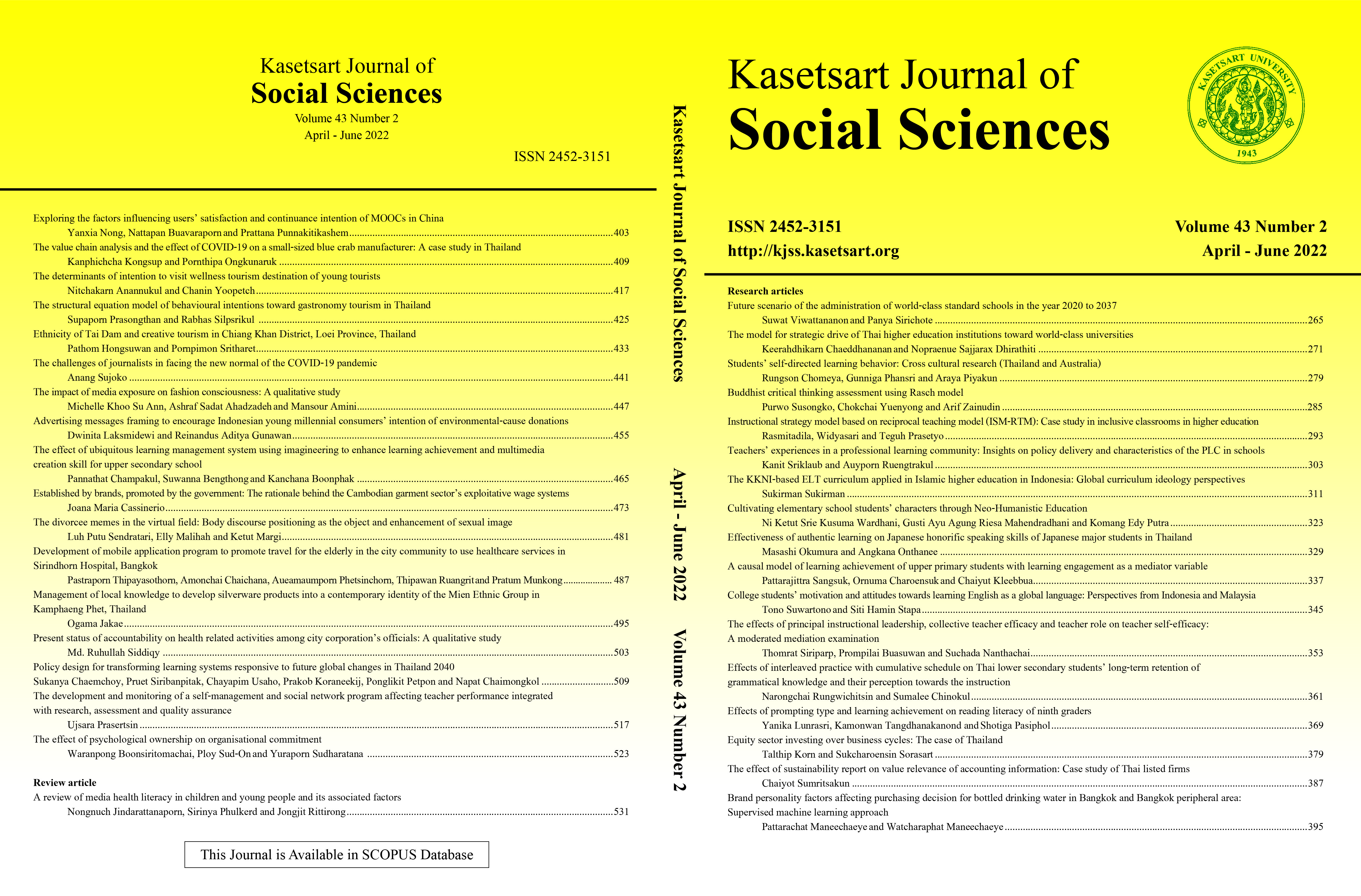Effects of interleaved practice with cumulative schedule on Thai lower secondary students’ long-term retention of grammatical knowledge and their perception towards the instruction
Keywords:
blocked practice, interleaved practice, long-term retention of grammatical knowledgeAbstract
This study investigated the effects of interleaved practice with a cumulative schedule on Thai lower secondary students’ long-term retention of English grammatical knowledge regarding the usage of Past Simple and Present Perfect tense and their perception towards the instruction over fourteen periods in nine weeks. Twenty-three students took a pre-test, immediate post-tests, and a one-week delayed post-test, and twelve of them were also interviewed at the end of the implementation. The qualitative data from the test scores were used to investigate the improvement in grammatical knowledge, as well as the long-term retention, and the data from the semi-structured interviews were analyzed to assess the perceptions towards the overall instruction. The results showed significant improvement in grammatical knowledge in all areas of form, meaning, and use and also elicited statistically significant long-term retention with the increased scores in both the immediate post-test and delayed post-test. For students’ perception, the results disclosed that interleaved practice seemed to be harder and more exhausting at first, but after getting familiar with it, the lessons were preferable to blocked lessons. The study recommended interleaved practice tended to be an effective method for improving students’ grammatical knowledge and enhancing long-term retention, and it should be applied in the language classroom with well-designed lessons.
Downloads
Published
How to Cite
Issue
Section
License

This work is licensed under a Creative Commons Attribution-NonCommercial-NoDerivatives 4.0 International License.
This is an open access article under the CC BY-NC-ND license http://creativecommons.org/licenses/by-nc-nd/4.0/










